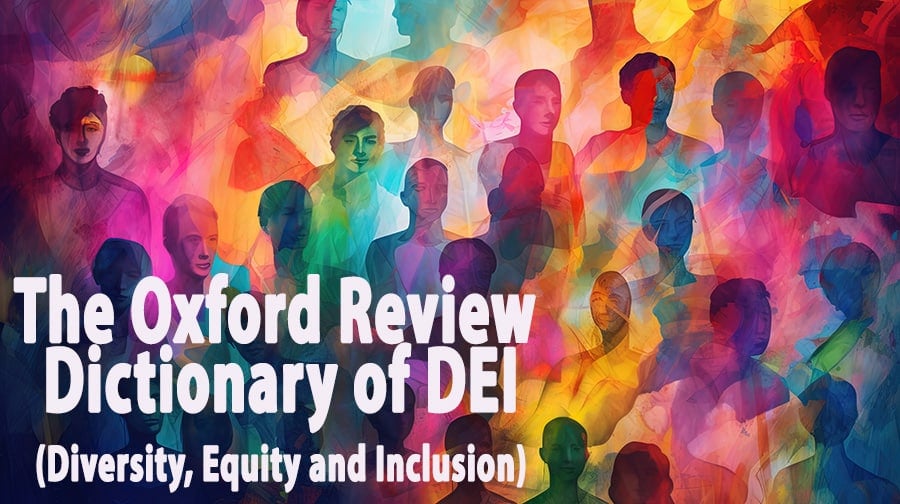Ableism Awareness – What it is and how to develop it

Ableism awareness involves understanding and addressing ableism, which refers to discrimination and social prejudice against people with disabilities. See here for Ableism – definition and explanation.
Back to The Oxford Review DEI (Diversity, Equity and Inclusion) Dictionary
Forms of ableism
It is important with ableism awareness to appreciate different forms of ableism because the awareness of ableism occurs at different levels. The different types of ableism include:
- Institutional ableism – policies and practices within organisations that disadvantage people with disabilities.
- Interpersonal ableism – interactions between individuals where ableist views are expressed.
- Internalised ableism – when individuals with disabilities internalise negative beliefs and attitudes about their own disabilities.
Ableism can significantly impact the mental and physical well-being of people with disabilities. It can lead to exclusion, lack of accessibility, and reduced opportunities in education, employment, and social participation. As a result DEI practitioners and professionals need to understand what methods and strategies can be used to develop an awareness of ableism across the different forms of ableism.
Increasing ableism awareness
Efforts to raise ableism awareness include education campaigns, disability rights advocacy, and promoting inclusive practices in workplaces and communities. For example:
- Education and Training –
- Conduct workshops and seminars focusing on disability awareness and sensitivity.
- Provide training for staff and management on inclusive practices and legal requirements.
- Include ableism and disability rights in educational curricula.
- Inclusive Communication –
- Use inclusive and respectful language when discussing disabilities.
- Provide communication materials in accessible formats (e.g., braille, sign language interpretation, large print).
- Policy Development and Implementation –
- Develop and enforce anti-discrimination policies that specifically address ableism.
- Ensure organisational policies are inclusive of people with disabilities in all aspects, from recruitment to career development.
- Accessibility Improvements –
- Conduct audits of physical and digital spaces to ensure accessibility.
- Implement changes to make workplaces, educational institutions, and public spaces accessible to people with various disabilities.
- Disability Representation –
- Include people with disabilities in decision-making processes and leadership roles.
- Ensure representation of persons with disabilities in media, educational materials, and public discussions.
- Community Engagement –
- Partner with disability advocacy groups and organisations.
- Support community events and campaigns that promote disability rights and awareness.
- Support Networks and Resources –
- Provide support groups or resources for employees or students with disabilities.
- Offer counselling and mental health support focusing on coping with ableism.
- Continuous Feedback and Improvement –
- Seek regular feedback from people with disabilities regarding inclusivity and accessibility.
- Commit to ongoing review and improvement of practices and policies related to disability.
- Leadership Commitment and Role Modelling –
- Leaders must openly commit to anti-ableism policies and practices.
- Demonstrate inclusive behaviours and language, setting a standard for the organisation.
- Integrating into Coaching Programs –
- Train coaches to understand and address ableism in their coaching practices.
- Incorporate disability awareness and inclusive strategies into coaching methodologies.
- Management Training and Development –
- Include modules on ableism, accessibility, and inclusion in management training programs.
- Equip managers with skills to support team members with disabilities and address any ableism issues.
- Inclusive Recruitment and Talent Management –
- Implement recruitment strategies that actively seek to include people with disabilities.
- Ensure talent management processes are accessible and fair for employees with disabilities.
- Performance Management –
- Adapt performance management systems to be inclusive of employees with different abilities.
- Ensure that performance evaluations are free from ableist biases and are fair.
- Team Building and Collaboration –
- Foster team environments that value diversity, including disability.
- Include activities in team-building exercises that raise awareness about disabilities and ableism.
- Accessible Learning and Development Opportunities –
- Provide learning materials in various accessible formats.
- Ensure that professional development opportunities are accessible to all employees.
- Creating Disability Employee Resource Groups (ERGs) –
- Support the formation of ERGs for employees with disabilities.
- Use these groups to provide peer support and input into organisational policies and practices.
- Regular Awareness Campaigns and Events –
- Organise regular events and campaigns to educate about ableism and celebrate disability diversity.
- Encourage participation and learning for all employees.
- Feedback and Continuous Improvement –
- Encourage feedback from employees with disabilities on ableism and inclusion.
- Use this feedback for continuous improvement in processes and practices.
- Supplier and Partner Inclusion –
- Work with suppliers and partners who demonstrate a commitment to disability inclusion and anti-ableism.
By integrating these practices and strategies into an organisation, ableism awareness can become part of the everyday culture, promoting a more inclusive and respectful workplace.
